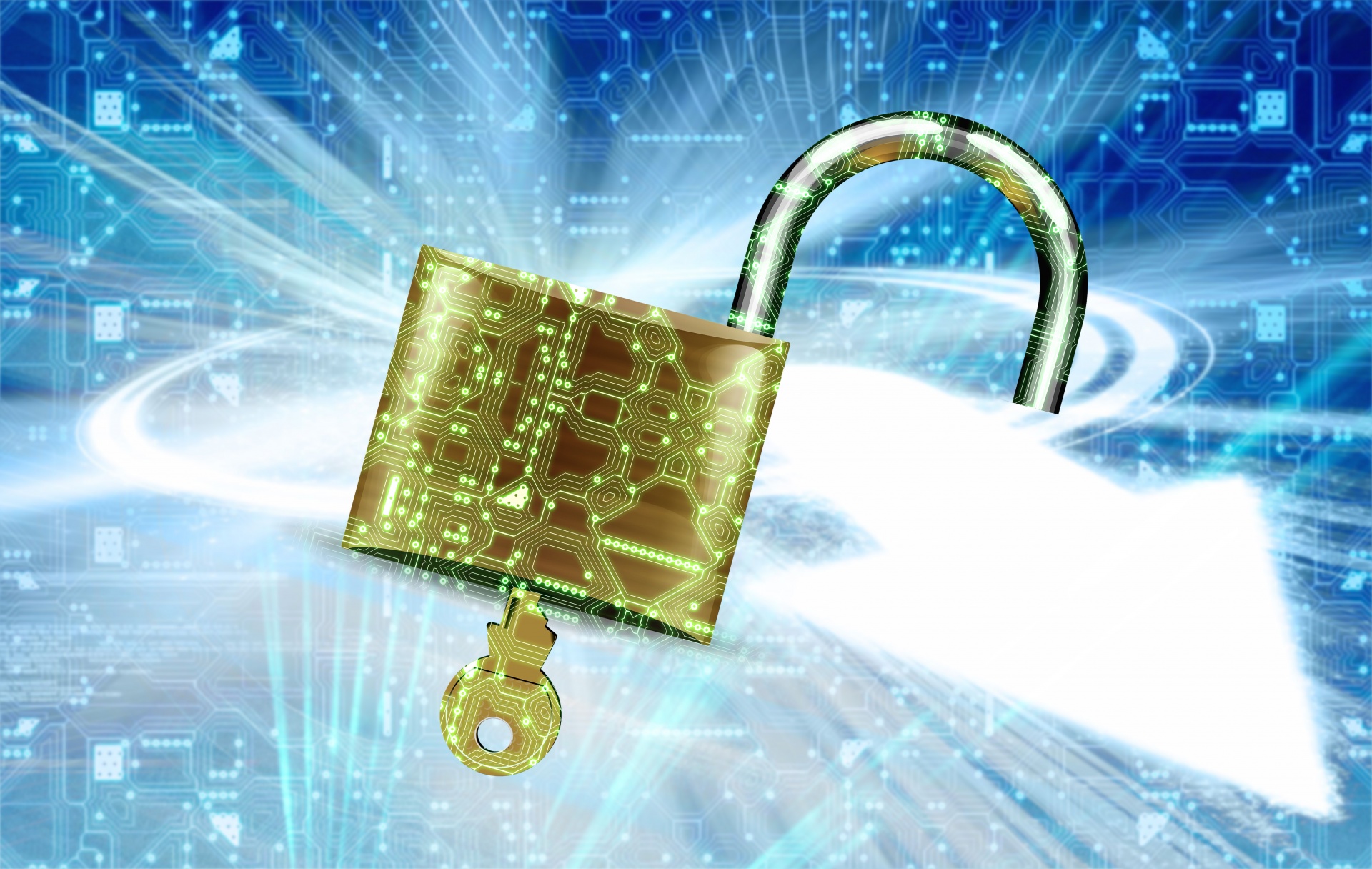How Bitcoin’s Decentralized Data Architecture and Smart Contracts using a Dead Man's Switch increase Security
Remember when your mother told you not to put all your eggs in one basket? It seems that Equifax, Facebook, Twitter, Microsoft, Google and all other centralized data systems failed that lesson. The key to security is distribution. If no one person has enough information in themselves to execute some action, then consensus must be sought. This is the strength of decentralized IT architecture that underlies bitcoin and other cryptocurrencies.

(Google Images - Wikimedia Commons)
The basic trade off here is between convenience and security and in general, great security requires a lot of inconvenience but there are ways of automating this with the right architecture. If a single computer always worked in isolation, then this would not be a problem, but because the base layer of the internet (TCP/IP) was designed poorly, information is sent as if all the information was outside of all envelopes in the mail system. We now try to correct it using TOR, VPN’s, etc, but it’s like plugging a leaky dam with silly putty.
The 143 million records that Equifax lost are now likely being sold on the dark web because it made the mistake of putting all that information in one place. The key to securing data of this nature is to split it up and send it back where it came from. There’s really no good reason to centralize this kind of structure other than the fact that authority wants special advantages that come with the ability to interfere, control and profit at your expense.

(Google Images - Wikimedia Commons)
Some say that authority is needed to protect against terrorism. Terrorism goes away in decentralized systems because terrorism is a byproduct of central authority. There will always be conflict. One person’s terrorist will be another’s freedom fighter. The key to reducing terror is to reduce authority. It’s authorities ability to generate unlimited capital that has magnified terror because authority is a centralization of political will. When you decentralize political will, you also spread thin the threats of all forms of power. Fail to do this and you trade in terrorists wearing turbans and wielding guns and machetes for terrorists wearing business suits and wielding nukes.
Remember that Star Trek required the consent of 3 officers (Captain, First Officer and Ships Engineer) to all provide a code for destruction of the enterprise? This is similar to the security approach in decentralized data structures. If no single person has enough information on their own, then a consensus must be reached.

(Google Images - Wikimedia Commons)
Bitcoin will flatten out authority by distributing power back to the source. That way, no one individual will be able to flip the nuclear switch. If you decentralize it so that no one individual can use the nuclear codes, how could consensus for war be reached? Not very easily I would think. In this same way, terrorism can be reduced.
PII (Personally Identifiable Information) can be held at the source and reputation information (similar to what we use here on the Steem blockchain) can work as the verification that the information is accurate. This can be accomplished in the same way PGP mail works with public and private keys that takes your set of PII, uses a SALT and generates a hash that can prove the accuracy of that information.
Some people will say what if there’s a mistake in the data? How do we undo that mistake if required consensus must be reached? Andreas Antonopoulos answers this question by showing how one can soften hard promises using code…
In my previous post about bitcoin I explained how to keep your crypto secure using a hardware wallet. You can do more to secure yourself by also using a distributed approach to your handling of passwords and sensitive data.
We used to use crude methods of breaking data up such as credit card numbers by sending 4 digits from 4 separate emails to different addresses. Then only the sender and recipient would be able to understand how to reconstruct the secret.
The same can be done with your bitcoin hardware wallet’s 12-24 word seed. Trezor and Ledger wallets advise you to write down your seed, but you don’t have to do this in the correct order. If you change the order according to a rule in the numbers that only you know, then give the secret of the order to one person and the words to a different person, then that will require consensus to reconstruct the wallet.
Alternatively if you don’t feel comfortable with doing this because of risk of collusion, you can set up a dead man’s switch. The concept is similar to what I do in my software Timaeus which updates depending upon a certain condition being satisfied. In this case, you might specify lack of access to a certain file on your machine would cause release of at least part of the secret necessary for some action to be taken.
The smart contract architecture now being set up in such platforms as Ethereum using ERC20 tokens and Dan Larimer’s upcoming EOS platform will already have options such as this included.
Donations (public bitcoin address):

3FwxQsa7gmQ7c1GXJyvDTqmT6CM3mMEgcv

thanks a lot for sharing of bitcoin information...✌✌
Neat.
I enjoy and learn a lot reading your posts friend :)
Closing the gap in knowlegde about blockchain and crypto, that's my reason of being here.
Thank you!
This post has received a 6.78 % upvote from @booster thanks to: @zoidsoft.
This post has received a 1.67 % upvote from @buildawhale thanks to: @zoidsoft. Send at least 1 SBD to @buildawhale with a post link in the memo field for a portion of the next vote.
To support our daily curation initiative, please vote on my owner, @themarkymark, as a Steem Witness
This post has received gratitude of 3.76 % from @appreciator thanks to: @zoidsoft.
This post has received a 18.24 % upvote from @boomerang thanks to: @zoidsoft
@boomerang distributes 100% of the SBD and up to 80% of the Curation Rewards to STEEM POWER Delegators. If you want to bid for votes or want to delegate SP please read the @boomerang whitepaper.